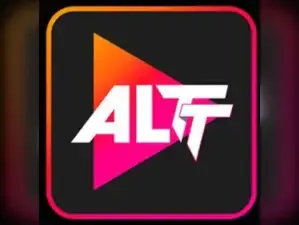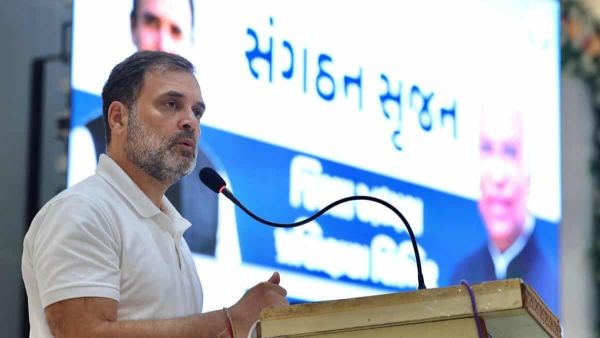Once valued at ₹1,209 crore, ALTT, the digital streaming platform from Balaji Telefilms, has been included in a list of 25 OTT platforms blocked by the Ministry of Information and Broadcasting (MIB) following alleged content violation.
On July 23, 2025, the MIB directed internet service providers across India to restrict access to these platforms, citing alleged violations of Indian laws related to obscenity and the indecent representation of women.
The action was taken under Section 67 and 67A of the Information Technology Act, 2000; Section 294 of the Bharatiya Nyaya Sanhita, 2023; and Section 4 of the Indecent Representation of Women (Prohibition) Act, 1986. The directive falls under the IT Rules, 2021, which mandate adherence to a Code of Ethics and compliance with takedown notices.
Launched in 2017 as ALT Balaji, ALTT was Balaji Telefilms’ entry into the direct-to-consumer streaming space. It is one of the more recognised names in the list, which includes platforms such as ULLU, Desiflix, Big Shots App, and Wow Entertainment.
According to Balaji’s FY24 annual report, the company invested ₹795 crore in ALTT and extended loans worth ₹103 crore, including interest. A valuation by a Big 4 firm placed ALTT’s enterprise value at ₹1,209 crore, a 32% premium over its carrying cost, attributed to recent strategic shifts, including cost optimisation and cash burn reduction.
Key shareholders in Balaji Telefilms include Ektaa Kapoor, Shobha Kapoor, and Reliance Industries.
In the Q4 FY24 earnings call, CEO Sanjay Dwivedi said films would be the company’s main growth driver over the next 2.5 to 3 years, followed by digital and then television. “We view content holistically—across TV, digital, motion pictures, and our B2C platforms like YouTube, Meta, and our own app,” he said.
As part of its digital pivot, Balaji moved ALTT from a subscription-only model to a hybrid SVOD and ad-supported (AVOD) framework. “Relying solely on SVOD has been a financial drag,” said Dwivedi. “Our app now operates on both ad-supported and subscription-based models.”
This shift helped reduce ALTT’s cash burn from ₹120–145 crore annually to around ₹35 lakh per month. The platform now has over 2 million active users and added 3.29 lakh subscriptions in Q4, including 1.73 lakh renewals. However, Dwivedi indicated that ALTT would now represent a smaller piece of the company’s broader digital strategy.
In FY25, ALTT launched 46 new shows and generated ₹20.26 crore in subscription revenue. The platform sold 10.6 lakh subscriptions, with content being viewed for over 5.8 million hours and generating 160 million views. ALTT currently hosts more than 172 shows.
The regulatory action comes at a time of increasing oversight of India’s digital content space. The IT Rules, 2021, continue to shape operational frameworks for streaming platforms, placing greater emphasis on compliance.
During the year, Balaji also merged ALT Digital Media Entertainment and Marinating Films into the parent company, a move aimed at streamlining operations, reducing redundancies, and achieving tax benefits.
What happens next for ALTT remains unclear. While the company has taken steps to restructure and reposition its digital business, the platform’s immediate future will depend on the regulatory process and how the situation evolves.
On July 23, 2025, the MIB directed internet service providers across India to restrict access to these platforms, citing alleged violations of Indian laws related to obscenity and the indecent representation of women.
The action was taken under Section 67 and 67A of the Information Technology Act, 2000; Section 294 of the Bharatiya Nyaya Sanhita, 2023; and Section 4 of the Indecent Representation of Women (Prohibition) Act, 1986. The directive falls under the IT Rules, 2021, which mandate adherence to a Code of Ethics and compliance with takedown notices.
Launched in 2017 as ALT Balaji, ALTT was Balaji Telefilms’ entry into the direct-to-consumer streaming space. It is one of the more recognised names in the list, which includes platforms such as ULLU, Desiflix, Big Shots App, and Wow Entertainment.
According to Balaji’s FY24 annual report, the company invested ₹795 crore in ALTT and extended loans worth ₹103 crore, including interest. A valuation by a Big 4 firm placed ALTT’s enterprise value at ₹1,209 crore, a 32% premium over its carrying cost, attributed to recent strategic shifts, including cost optimisation and cash burn reduction.
Key shareholders in Balaji Telefilms include Ektaa Kapoor, Shobha Kapoor, and Reliance Industries.
In the Q4 FY24 earnings call, CEO Sanjay Dwivedi said films would be the company’s main growth driver over the next 2.5 to 3 years, followed by digital and then television. “We view content holistically—across TV, digital, motion pictures, and our B2C platforms like YouTube, Meta, and our own app,” he said.
As part of its digital pivot, Balaji moved ALTT from a subscription-only model to a hybrid SVOD and ad-supported (AVOD) framework. “Relying solely on SVOD has been a financial drag,” said Dwivedi. “Our app now operates on both ad-supported and subscription-based models.”
This shift helped reduce ALTT’s cash burn from ₹120–145 crore annually to around ₹35 lakh per month. The platform now has over 2 million active users and added 3.29 lakh subscriptions in Q4, including 1.73 lakh renewals. However, Dwivedi indicated that ALTT would now represent a smaller piece of the company’s broader digital strategy.
In FY25, ALTT launched 46 new shows and generated ₹20.26 crore in subscription revenue. The platform sold 10.6 lakh subscriptions, with content being viewed for over 5.8 million hours and generating 160 million views. ALTT currently hosts more than 172 shows.
The regulatory action comes at a time of increasing oversight of India’s digital content space. The IT Rules, 2021, continue to shape operational frameworks for streaming platforms, placing greater emphasis on compliance.
During the year, Balaji also merged ALT Digital Media Entertainment and Marinating Films into the parent company, a move aimed at streamlining operations, reducing redundancies, and achieving tax benefits.
What happens next for ALTT remains unclear. While the company has taken steps to restructure and reposition its digital business, the platform’s immediate future will depend on the regulatory process and how the situation evolves.








